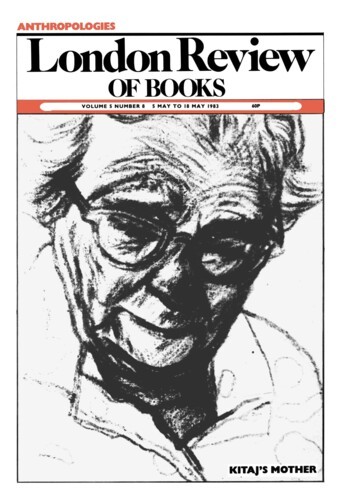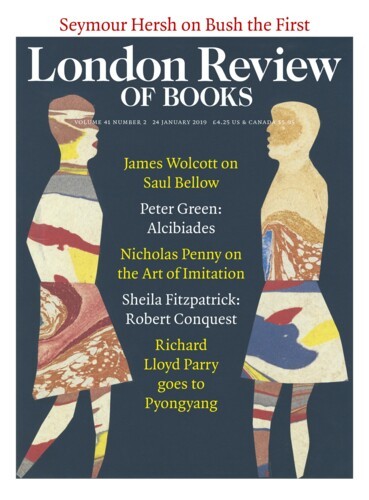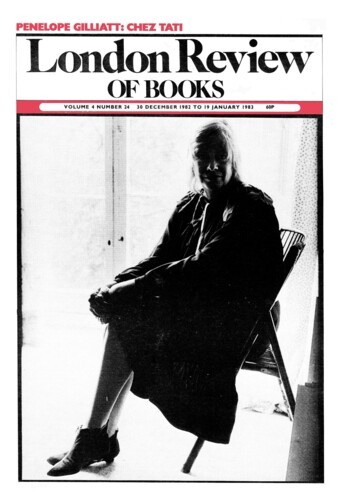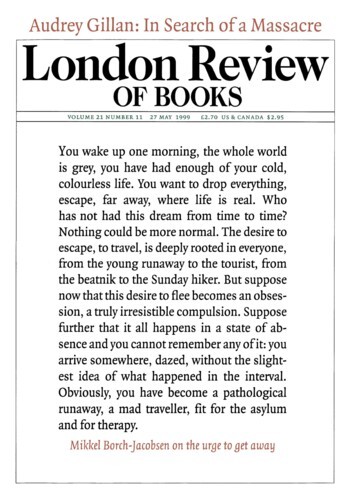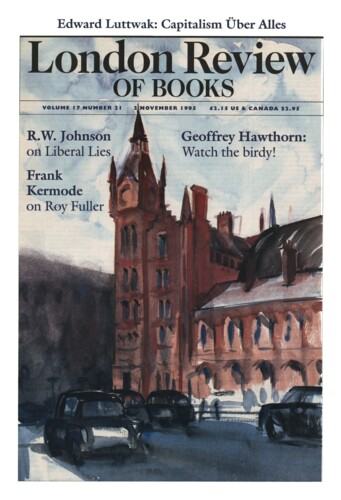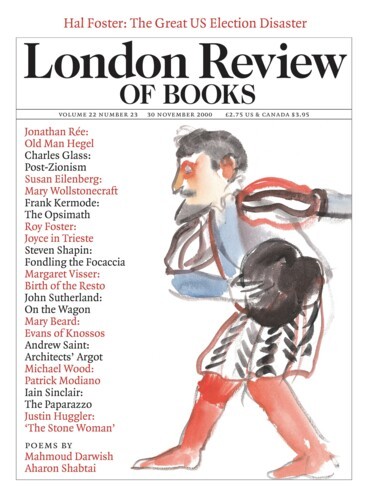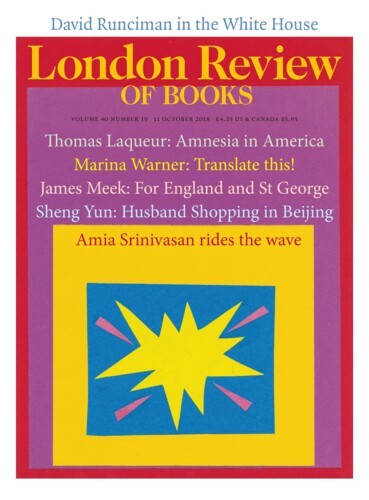The Last Romantic
John Bayley, 5 May 1983
Transfiguration is into a kind of poetic absence which includes only the idea of love, not its quotidian betrayals or fulfilments. ‘What remains of us is love’ in the sense that love equates with self-extinction. I think Larkin here gives his own entombed precision to the symbol, which for the Symbolists gave out nothing but its own powers of suggestion. To Larkin it suggests the comfort of disappearance, selflessness, awayness, and in the universe this is no doubt the true comfort of love.
